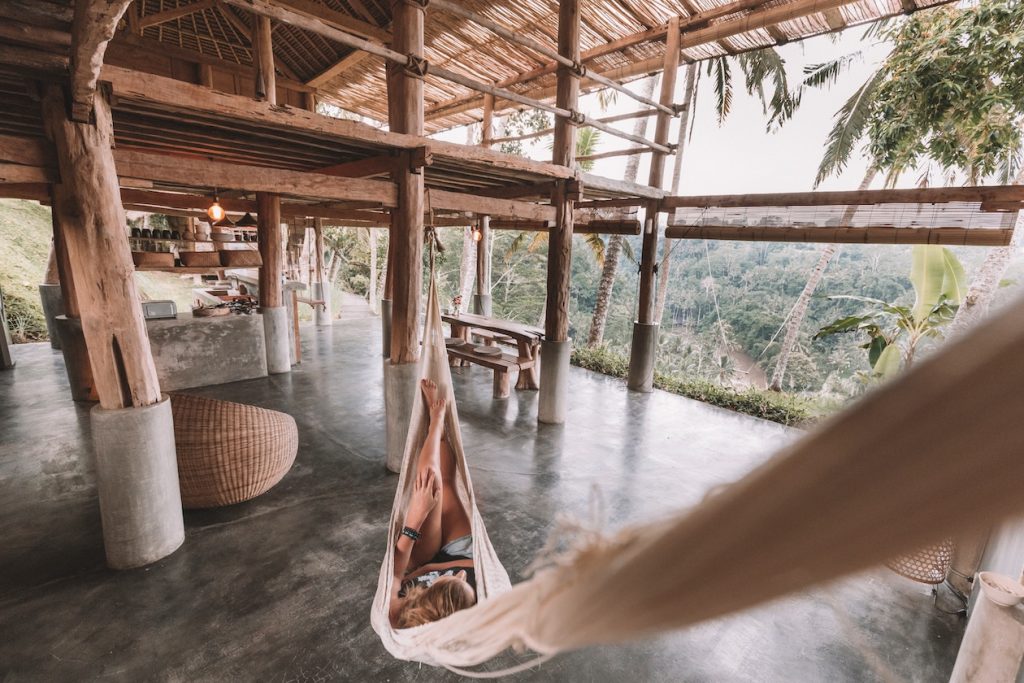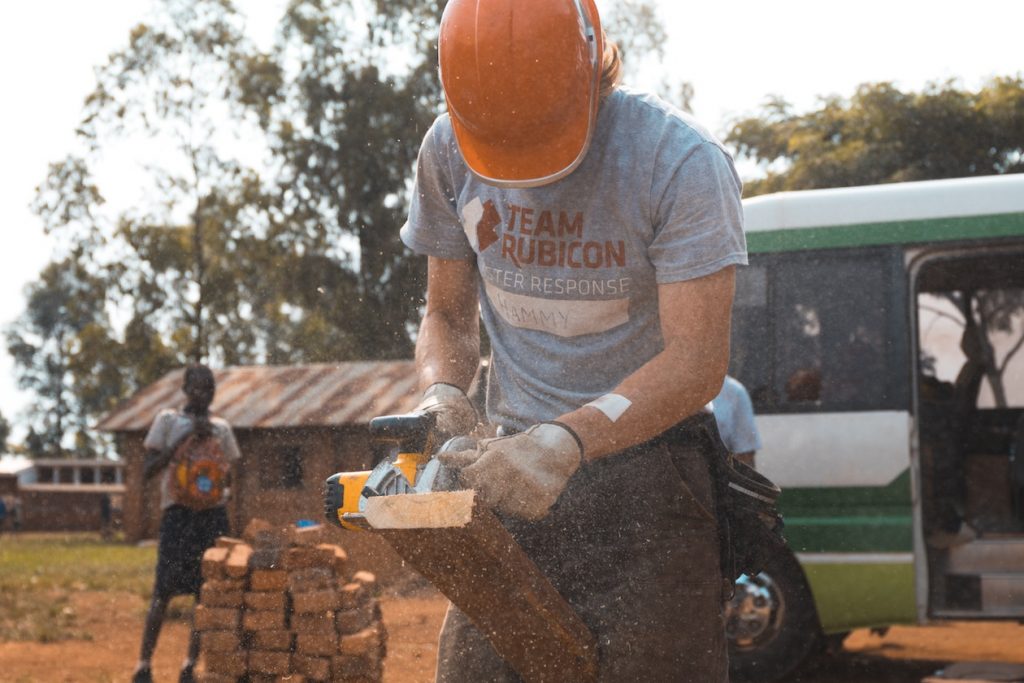Traveling long-term offers more than just a chance to see breathtaking sights, eat delicious exotic foods, and meet marvelous people. It also gives you the opportunity to expand your interests and develop new and hidden skill sets. Like a caterpillar in a cocoon about to burst, I had wings, latent talents waiting to be exposed to the light of day – the wings that have taken me to places I never dreamed of.
Some people are fortunate enough to make a living online by doing things like freelance marketing, website development or running successful blog pages. These people have the option to work remotely and don’t need to worry about an income while traveling. But the rest of us have to be a little more creative and figure out ways to get by in the places we are. The following is a list of 10 skills I’ve developed and used, in no particular order, to earn money and account for room and board in foreign lands to keep me going while traveling long term.
I tell you now, There’s nothing special about me. I’m as common as a chain on a bicycle, so when I say these options are there for anyone, I do mean anyone. All you have to do is get out there, take that first step off your front porch and into the world of travel, and those big beautiful monarch wings that you’ve been harboring will spread as natural as the slink in a silkworm’s walk.
#10: Farming

Photo by Sandy Zebua on Unsplash
I’ve worked on many farms over the years and there’s always something new to learn. I’ve been to an organic chicken farm in Canada, a coffee plantation in Ecuador and a trout farm in Spain. Very different environments, but one thing all farm work has in common is that it is fun, interesting and easy to learn. To be outside in the elements, working in the soft dirt, planting and nourishing fresh crops, cooking and eating food that you’ve personally seen through to maturity; it awakens something primal within that the vast majority of us are missing in this day and age. It triggers the reward systems that have been programmed and hard wired into human beings since the dawn of time.
Farmers are generally a happy, down-to-earth bunch and from my experience, tend to appreciate a helping hand. There’s always something that needs doing on a farm or ranch, and the more eager you are to learn the more likely they are to show you. Anything you’re capable of doing on your own frees them up to address other priorities, so if you keep an open mind, you’ll walk away with new skills that you can take with you when the job’s done.
From barn door repair to fruit picking techniques, the practical knowledge you’ll gain is endless. I once helped a pregnant goat deliver 2 kids, and not only did I come away with unique experience and a great story, I also learned that a baby goat is called a kid. You really never know the extent of the education you’ll receive.
There’s plenty of websites that allow travelers to connect with farmers in search of labor, usually in exchange for a roof and a hot meal. But you can also find work simply by inquiring. Go to an open air market or local family owned grocery store and ask around for agriculturists that may be able to host a willing-to-work traveler. A lot of times folks that need a hand, especially in rural communities, either don’t know how or don’t have the time to search online for people to fill the spots they have opened. By initiating that first step, you’d be surprised by how quick you find yourself with a bed to sleep in, food in your belly and a task to wake up to. And if you’re lucky, a few extra bucks in your pocket to keep you traveling.
#9: Hostel Work

Photo by Jared Rice on Unsplash
This one’s a classic. Working in a hostel is a great first step into the world of long term travel, especially when you’re young, outgoing and full of energy. If you’ve ever traveled staying in hostels then you know it’s not uncommon to come lumbering up to the front desk with your massive pack, exhausted from 18 hours of transit, to be greeted by a bubbly twenty-something with a smile as wide as the Nile river and an accent that sounds nothing like the locals. They check you in, show you where to put your luggage, give you a map and a rundown of the area, then tell you the cheapest place to buy beer.
Hostels all over the world are always looking for travelers to help staff their establishments. They usually start you off as a volunteer and offer a bed and a couple of meals per day. Generally there tends to be a high turnover, since the workers are still travelers that happen to have a little more time to stay, and a little less money to spend. But if you find a place that you like, and you work hard, it’s possible that the owner or manager will ask you to stay on as a paid member of the staff. And even if you’re not officially getting paid, there’s usually at least some tasks worthy of receiving tips from your fellow travelers.
The benefits of working at a hostel go beyond having a place to stay. Often times the hostel will work out deals with local businesses allowing you to take tours, eat great local food and buy clothes and souvenirs at discount prices, if not for free. When I was in Nicaragua I lived and worked at a hostel for 2 months that gave me a discount on all the gear at a local surf shop, a deal on the food at the adjoining restaurant and allowed me to go on the world famous volcano boarding tour down Cerro Negro for free whenever I wanted. And if you’re in a country that speaks something foreign to you, you’ll have the added bonus of practice through immersion, one of the best ways to learn a language.
#8: Bar Tending

Photo by Jakub Dziubak on Unsplash
Bartending is a great way to pocket a few extra quid. This one kind of rolls over from hostel work. If you find yourself in a hostel with a bar, get as many shifts in as you can and learn as much as possible. Experience working in a bar is invaluable whether you’re traveling or not. It’s something that you can put on a resume, do part time if you’re in school or working, and use to extend your trip.
The advantage of learning this skill while traveling is that the training is free, and you can take the job and see if you like it without the high pressure that can often come with working back in your hometown. Any bar that will hire a backpacker is usually pretty relaxed and willing to accept more rookie mistakes than a normal bar because you’re usually only getting paid in tips and accommodation. It’s the yin and yang of the job; you don’t have to submit a resume and provide references to previous employers, and they don’t have to pay you a minimum wage for your labor. But if you’re good, and you enjoy the work then the practical experience you soak up, together with the tips you can generate, will leave you walking away on top.
#7: Rural Construction

Photo by Alex Radelich on Unsplash
There’s nothing like doing construction in the countryside. I say rural construction because unless you have a work visa and some prior experience it’s pretty much impossible to get a job working in the mainstream construction industry in a big city as a traveler. Sorry to dash your hopes of working on that huge downtown high rise in Singapore as a backpacker, but it ain’t gonna happen.
You can, however, find work doing small jobs for people a little further out on the fringes of society, away from the building inspectors and project deadlines. This is a lot like finding farm work and often accompanies it. Ask around small communities if there’s anyone who needs help with manual labor. You don’t have to be a journeyman plumber or master electrician, sometimes people just need someone to take turns with them behind a shovel while they dig an irrigation ditch, or paint a wall while they run errands. If you’re lucky, your host might even teach you a bit of an actual trade. Just keep an opened mind and try to be creative in ways you can help.
I lived for 2 months in the Sahara desert helping two brothers build a riad (a traditional Moroccan bed and breakfast) out of mud and stone. We were miles from the nearest town and could only work in the early morning and late evenings because the days got too hot. But the work was simple. We didn’t need tools, only our hands and some sticks. Jobs like that one are out there, you just need to find them.
#6: Child Care

Photo by Pedro Nogueira on Unsplash
To be honest, this is a job that’s much easier to land for the female travelers. There’s always a demand for au pairs and nannies, especially in Europe. But if you’re a male, don’t be shy. Apply for those jobs all the same, it’s 2018 and the world is changing.
Normally, if you find work as an au pair it’s for a more affluent family that’s on the higher end of the socioeconomic spectrum. They often want someone who speaks a different language so that their kids will have a head start at being bilingual, or even trilingual. If they have the money to pay you to watch their children, on top of feeding and housing you, then you can expect to be living with a little more luxury than the average nomad. Depending on the kids, it can be a nice break from the constant chaos of travel, to settle down and earn some money in style.
But working as a nanny isn’t the only way to get involved. If you have the heart and want to help, you can also volunteer at an orphanage or refugee camp. These are the kids on the other end of that spectrum. Although you probably won’t get paid for your work, the intangible reward you get from helping people in need goes beyond the checkbook. I lived in India for 6 months volunteering at an orphanage and words can’t describe how amazing my time there was. It also became my home base when I wanted to go on trips and explore other parts of the country. A real win-win for a vagabond.
#5: Tour Guide

Photo by Jeff Smith on Unsplash
Ever been on a group tour, looked at the guide and said to yourself “I could do that?” Well, you can. Tour guiding is all about having been there. If you know where to go and a few facts about the area, you can show people around. Think about it, as a guide, by definition you’re showing people who’ve never been to a place – the place.
Again, working in a hostel can parlay you into this business. Once you know and learn an area, you’re ready to show it to other people. Find out and remember a few key points, or even write them down if you want, then offer a free walking tour to get started. Take other tourist and help them explore the city the way you’d want it to be shown to you. Any little special thing you can offer or show really makes a difference for the people in your tour group.
When I was in Krakow, Poland I started a pub crawl from the hostel I was staying at after only being there for three days. I arrived and went bar hopping by myself the first two nights and made a mental note of my favorite bars and their prices. I also chatted with the bar staff a bit to build rapport and let them remember my face. When the third night rolled around, I was able to take everyone at the hostel out on an “Unofficial” Pub Crawl around Krakow. Since the group had never been out in the city, it seemed to them as if I’d spent my whole life there, and when I showed up at the bars the people working remembered me and appreciated all the business I brought them. I got free drinks from the establishments and my appreciative tour group alike.
#4: English Teaching
I’m assuming that if you’ve read this far you speak decent English, which is great because you naturally have something that is in high demand in many places in the world. Every year people leave England, the States, Australia, and Canada to go overseas and teach English in places like Korea, China, Spain and Saudi Arabia. For a lot of people leaving home to teach English is their first experience traveling abroad.
As a native English speaker you’re already qualified, but if you want to dive deeper into the language, there’s no shortage of TEFOL and TESOL certification courses you can take, either in a classroom on location, or online. If you’re so inclined you’re only a Google search away from a potential new career. The upside to taking a course, besides “officially” qualifying you for a teaching position on paper, is that a lot of schools will often help you with job placement and provide you with recommendations and resources to help get you where you want to go.
But like I said, the piece of paper isn’t always necessary. There’s a ton of people, especially students and businesspeople, that just want to practice the English they already know with a native speaker. Simply put flyers up around school campuses and on street corners in a foreign land with your name and number, “Private English Lessons With A Native Speaker”, and sit back as the calls roll in. When they call, conduct a short interview and verify that their speaking is at a level that you’re comfortable coaching. Find out what the main focus of their interest in improving their English is. For example, do they want to lose their accent, learn cultural formalities in business settings, or do they simply want to practice in a casual setting? If you feel like you can help, pencil them in and start teaching. And don’t worry about an office or classroom. Any park or cafe is a fine place to hold a good, real-world English class.
Once you have one student, word can spread fast, so be ready. When I was living in Turkey I started teaching one student who wanted to improve his English, and by the end of the week, he asked me to come to his student housing complex and teach six of his other flatmates who also wanted to take classes. I held sessions in their dorm room and I charged a group rate, so I made the money I would have gotten for 7 individual one-hour lessons in 2 hours with seven people. Once you get the hang of it, teaching is really fun and can be very rewarding.
#3: Jewelry and Handcrafts
This skill requires some material, which can sometimes be hard to come by, and can become quite burdensome if you’re trying to travel light. But if you can swing it, it’s a great way to get a little extra cash in transit. I learned to make macrame from some friends when I was in Israel. It was great. I would find beautiful stones and shells on the beach and with a little string and a lighter turn them into cool and meaningful pieces of jewelry for the people I’d meet along my travels. From there I started to watch YouTube videos and learn some of the more complex and intricate ways to hand tie bracelets, necklaces, and earrings. With a bit of practice, I made enough and got to the level where I was confident to ask for a bit of dough for one of my pieces. I eventually learned how to wire wrap as well, another feather in my charm-making cap.
Jewelry making is good because it’s something you can do in your free time. It’s great when you’re hanging out on the beach, sitting in a common room watching Netflix or trying to pass the time on a cross-country bus ride. It also gives you something to do when you’re in a new place. You start to see the world different and suddenly the beach shells that you used to glance over become potential trinkets for an anklet. The small stones in the streets transform into potential pendants you can wear to remember your favorite villages. The world opens up and you can make amazing art out of anything you want.
And there’s nothing better as a thank you, parting gift or conversation starter than a piece of jewelry that you handmade. I’ve happily given away necklaces to host, clients and hitchhiking rides during my travels, and I can see how much it genuinely touches people. It’s a meaningful type of currency, that I personally think the world needs more of. A fantastic skill that never leaves you. Sell to strangers, give to friends, make for yourself.
#2: Street Performing (Busking)
Anything you could do in a talent show you can do on the street for money. This is your chance to show your stuff and a fun way to maintain your vagabond lifestyle. I met a street magician from England in Nicaragua, a professional hula-hooper from The States in Australia and a juggler from Argentina in Peru. If you enjoy doing it, it’s a street corner option.
Maybe you’ve already developed a talent, or maybe this is the excuse you needed to finally learn how to be the human statue you’ve always aspired to be. Either way, street performing is there for you. If you’re not good yet, that’s ok. You’re not performing the ten o’clock show at the Mirage, your practicing for strangers in passing. As you get better so will your tips, so it’s a good motivator to improve, but only practice can make perfect. Don’t be shy, get out there, be creative and live your dream. Only one caution: Some countries and cities require you to have a license, so check local restrictions before busking.
#1: Play Music
This one is my favorite. For me, there’s honestly nothing more entertaining, interesting and rewarding than learning an instrument, and the benefits are unparalleled when traveling. I learned to play guitar on the road and the number of times it’s made me friends, got me paid, and entertained me when I’ve been alone is beyond counting. Now that I have the skill, I don’t know how I ever lived without it.
Music is a universal language, so it’s invaluable when you’re traveling around and can’t communicate by speaking. It doesn’t matter if I’m at an open mic in Georgia, on the street in Colombia or on the beach in Greece, when I strike up those chords for Hotel California and look around, I see the smiles start to beam and the bodies start to sway as everyone waits for the chorus to come around so they can sing along; “Such a lovely place! Such a lovely face!” The feeling is magic.
I’ve traveled around the world busking and jamming with locals and other travelers alike, but I’ve also found myself in some unique situations that allowed me to make and save capital as well. For example, I once worked out a deal with a hostel in Bogota to play in their bar for an hour a night, and in exchange, they gave me a free bed and meal, plus I got tips from the audience. I also found myself hosting an open mic night in Thailand for accommodation and free drinks on the island of Koh Tao. If you can pick up a good instrument to travel with, and really get into it, there’s no telling where it can take you.
Final Thoughts:
Don’t be afraid to take these ideas and mix ‘em up. Get creative. Teaching doesn’t have to extend only to English, or even to language. Take what you’ve learned on the guitar and teach a beginner kids class. Find a place to hold a jewelry making workshop. Offer drop-in, donation-based yoga classes in a park once a week. Remember anything you’ve learned you can teach to a beginner, and the level of your teaching rises with your own development.
I think a big reason to travel the world for most people, is not only to explore new lands, but to discover themselves as well. Learning new, fun and creative ways to make money and survive on the road will build your character, and in the long run, make you a better person. It can be challenging at times, maybe even scary, but it’s well worth it for the experience, stories and skills that will stay with you for a lifetime.